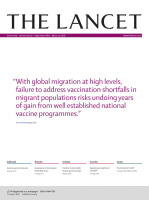Calculating the health impact of a financial crisis and subsequent austerity measures is an inexact science. A new UN report, published on April 25, 2018, illuminates the repercussions on health care of the 2008 monetary crisis, state retrenchment, and the implementation of a royal decree in Spain, echoing findings of an earlier European Commission 2017 Country Health Profile. The consequences and patient perceptions of Spain's emergency rescue package in the wake of the financial crash were also analysed in an Amnesty International document, published April 24, 2018.
Taken together, the three sources point towards a health-care system that has deteriorated in accessibility and affordability. In 2010, the average waiting time for elective surgery was 65 days; in 2016, it was 115 days. After the introduction of the Royal Decree, implemented in September, 2012, undocumented migrants were excluded from all but basic emergency care, prenatal care, and paediatric care. The share of out-of-pocket spending as a percentage of current health expenditure was 24% in 2015, higher than the 15% European Union (EU) average. Repercussions of the financial crises are not necessarily all detrimental: increases in healthy behaviours (eg, cycling, walking) and reductions in risky activities (eg, consumption of alcohol or tobacco) might occur—concepts previously explored in a paper of the 2013 Lancet Series Health in Europe 7.
Economically, Spain has made substantial improvements. In the second quarter of last year, GDP surpassed its pre-crisis peak, although unemployment, which is also decreasing, is still among the highest in the EU. Further, it is noteworthy that life expectancy at birth in Spain reached 83 years in 2015, up from 79·3 years in 2000, and was the highest in EU countries.
The true impact of austerity and the emergency measures implemented by the Spanish Government might not become clear for some time. They remain in force in Spain today and continue to affect the population. Prime Minister Mariano Rajoy's Government has an obligation to fulfil the right to health. Now is the time to release the grip on the country's purse strings and reform provisions of the Royal Decree.
 We cite The Lancet occasionally, as many subjects are treated by the journal in a wholesome way and are related to different aspects of Social Medicine.
We cite The Lancet occasionally, as many subjects are treated by the journal in a wholesome way and are related to different aspects of Social Medicine.
 ACCESO A LA SEPS
ACCESO A LA SEPS








